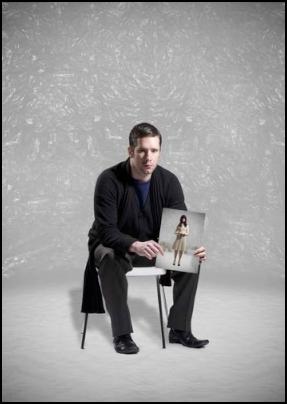Truth, Dreams and Reality Converge In New BATS Play
"Death and the Dream Life of Elephants" by A Slightly
Isolated Dog
Directed by Leo Gene Peters
Reviewed by
Carolyn Meers
10 November -21 November BATS Theatre

Confusion, sadness, loneliness, fear, a view of humanity from a totally different angle -- just a typical day of the life of a Wellington twentysomething in Leo Gene Peters' latest directorial project "Death and the Dream Life of Elephants".
While at times baffling and heady with symbolism --
what is the "elephant" and why do we seek it? -- "Death and
the Dream Life of Elephants" cuts through with powerful
moments of grief, anxiety, and humour that temper the
fantasy, lending balance and full emotion to the tale.
Wellington theatre collective, A Slightly Isolated
Dog, began creating "Death" with the goal of exploring the
"questions we face on a daily basis", which include musings
on "death, growing older, family" and, of course, the
ongoing search for personal purpose and meaning in life.
The play follows the emotional and spiritual
meandering of Julian Gallo, a Wellingtonian in his late
twenties who has recently lost his mother, quit his
lucrative job and broken up with his girlfriend. Julian is
ripe for an existential epiphany. After weeks of wandering
the city alone, applying for jobs he doesn't want and
generally wallowing, Julian is visited by an "art dealer"
who demands that he hand over a very powerful elephant
figurine that had belonged to Julian's late mother. The
figurine allows a brief but complete glimpse of humanity in
all its forms, throughout the world -- a sort of epic
montage.
"Everyone sees something different" when they
peer through this magical elephant, Julian is told, and its
effects are dangerous but coveted.
Joining Julian is a
cast of quirky but honestly rendered characters: a waitress
who counts incessantly, her ageing grandmother who collects
and names elephant figures, a Victoria student who likes to
hold the hand of the Max Patte statue on the waterfront, and
a surly private detective with a heavy breathing canine
companion. Intermixed with other colourful individuals,
"Death" presents a perspective that is age-old but
constantly evolving: the angst, pain, and awkwardness of the
quarter life crisis.
Visually, "Death" is and
insightful and inspired, a creative spectacle.
Though
the supernatural elements of the play are entrancing - if a
bit puzzling -- it is the universally human moments in the
play that shine through, disarmingly familiar and true.
"Death" may appear as a piece of reverie, but its rooted
firmly in the reality of being
human.
ENDS


 Martin LeFevre - Meditations: The Enlightenment Is Dead; What Is True Enlightenment?
Martin LeFevre - Meditations: The Enlightenment Is Dead; What Is True Enlightenment? Ian Powell: Widening Gap Between Health System Leadership And Health Workforce
Ian Powell: Widening Gap Between Health System Leadership And Health Workforce Keith Rankin: The Great World War 1914-1945 - Germany, Russia, Ukraine
Keith Rankin: The Great World War 1914-1945 - Germany, Russia, Ukraine Gordon Campbell: On Our Austerity Fixation And Canada Staying Centre-left
Gordon Campbell: On Our Austerity Fixation And Canada Staying Centre-left Ramzy Baroud: Screaming Soldiers And Open Revolt - How One Video Unmasked Israel's Internal Power Struggle
Ramzy Baroud: Screaming Soldiers And Open Revolt - How One Video Unmasked Israel's Internal Power Struggle Peter Dunne: Dunne's Weekly - It's An Election, Not A Coronation
Peter Dunne: Dunne's Weekly - It's An Election, Not A Coronation